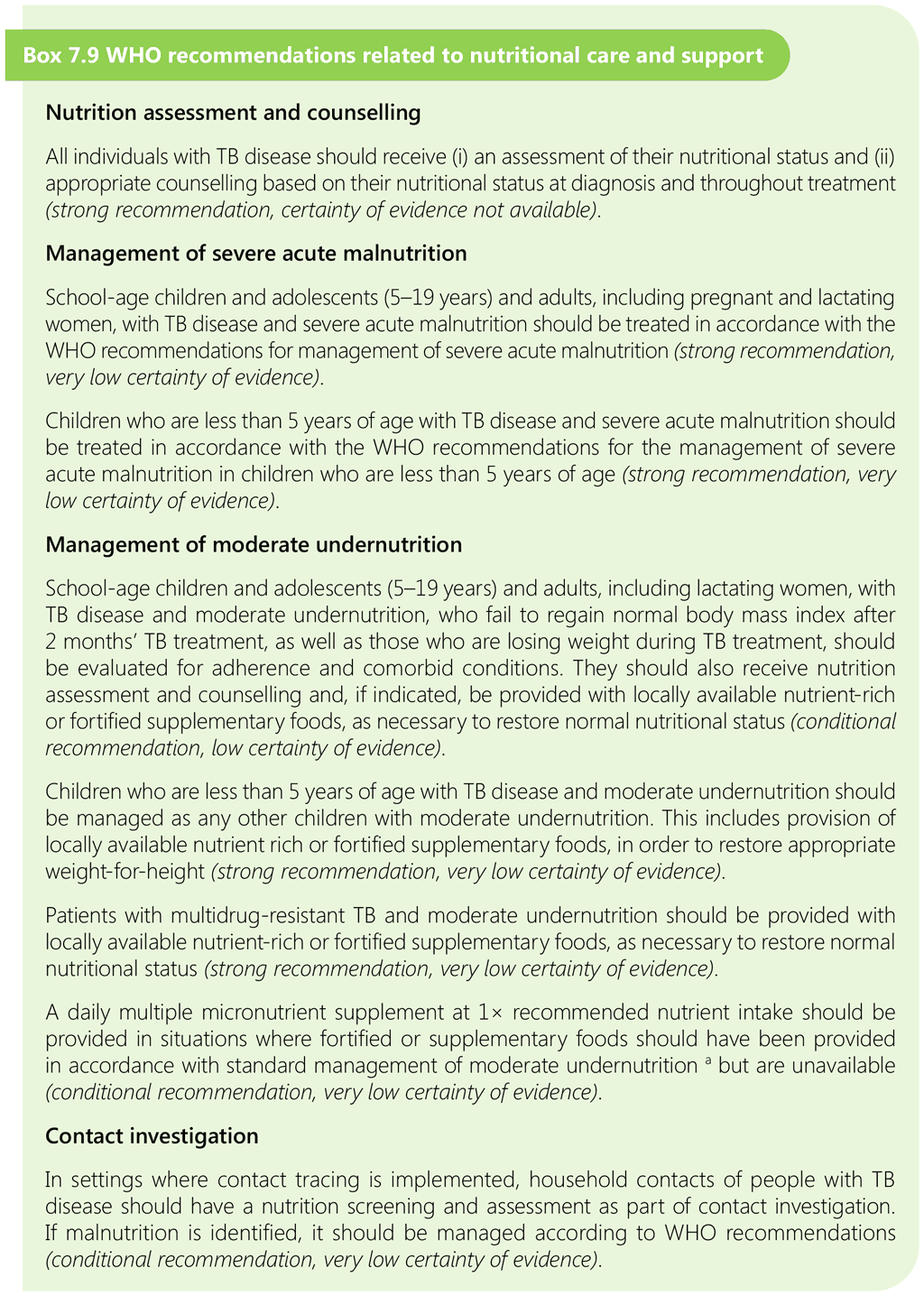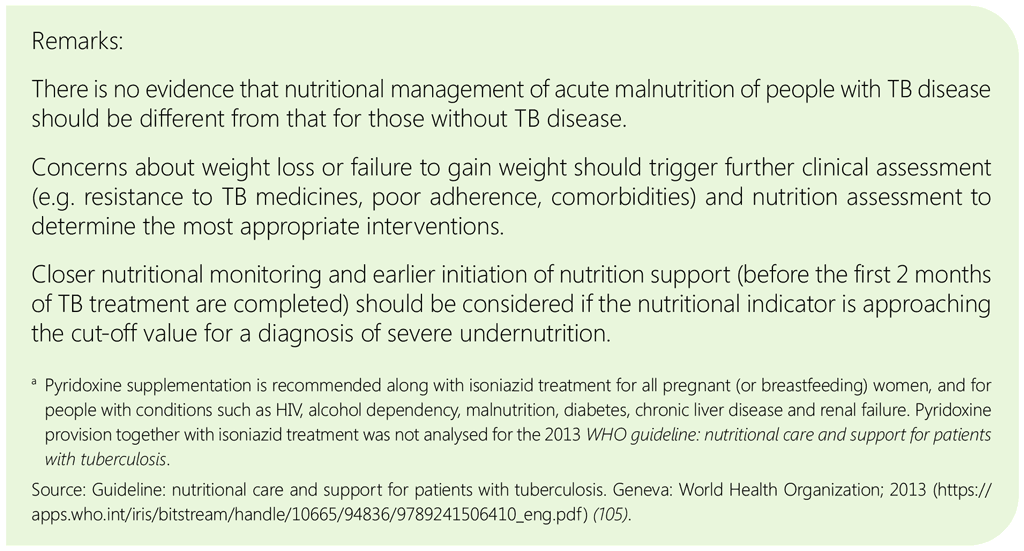Перекрёстные ссылки книги для 7.6.3. Nutritional care for children and adolescents with TB
WHO provides guidance on the principles29 and recommendations for nutritional care and support of people with TB as part of their regular TB care.
Five guiding principles are key for providing nutritional care and support as an integral part of TB care and prevention (105):
- All people with TB disease should receive TB diagnosis, treatment and care according to WHO guidelines and international standards of care. When malnutrition is identified at the time of TB diagnosis, TB is considered a key causal factor that needs to be addressed. It is essential that nutrition assessment and assistance do not divert resources from optimal TB diagnosis and care. Concerns about weight loss or failure to gain weight during TB treatment should trigger further clinical assessment (e.g. resistance to TB medicines, poor adherence, comorbidities) and nutritional assessment of the causes of undernutrition to determine the most appropriate interventions.
- An adequate diet containing all essential macro- and micronutrients is necessary for the well-being and health of all people, including those with TB infection or TB disease.
- Because of the clear bidirectional causal link between undernutrition and TB disease, nutrition screening, assessment and management are integral components of TB treatment and care.
- Poverty and food insecurity are both causes and consequences of TB. Providers involved in TB care play an important role in recognizing and addressing these wider socioeconomic issues.
- TB is commonly accompanied by comorbidities such as HIV, diabetes mellitus, smoking, and alcohol or substance use, which have their own nutritional implications. These should be considered fully during nutrition screening, assessment and counselling.
People with TB should be nutritionally assessed and receive the same nutritional care and support as other people of similar nutritional status, in agreement with all relevant WHO recommendations.
The recommendations are grouped in four areas related to nutritional care and support to cover especially vulnerable populations, with an additional area for contact investigation (Box 7.9).


The nutritional status of children and adolescents with TB should be assessed regularly during TB treatment. All children and adolescents diagnosed with TB who do not meet criteria for treatment of SAM still require nutritional support. This includes efforts to continue breastfeeding (at least until age 24 months where possible) and to ensure adequate nutrient intake using locally available and affordable foods. Additional energy (up to 20–30% more calories) is important during the intensive phase of treatment and is simplest to provide through additional household foods as part of a balanced varied diet. A clear explanation and advice to the caregiver is important. Where it is not possible to meet the needs with household food, the child or adolescent can be provided with nutritional supplements (e.g. ready-to-use therapeutic food) until stabilized.
Infants aged under 6 months with malnutrition or growth failure require referral to a therapeutic feeding programme to receive a special formulated mixture of protein, carbohydrate, lipid, vitamins and minerals, as do children of other ages with severe malnutrition. If therapeutic feeding is not available or feasible, breastfeeding mothers should be given nutritional support to optimize breastfeeding.
 Обратная связь
Обратная связь